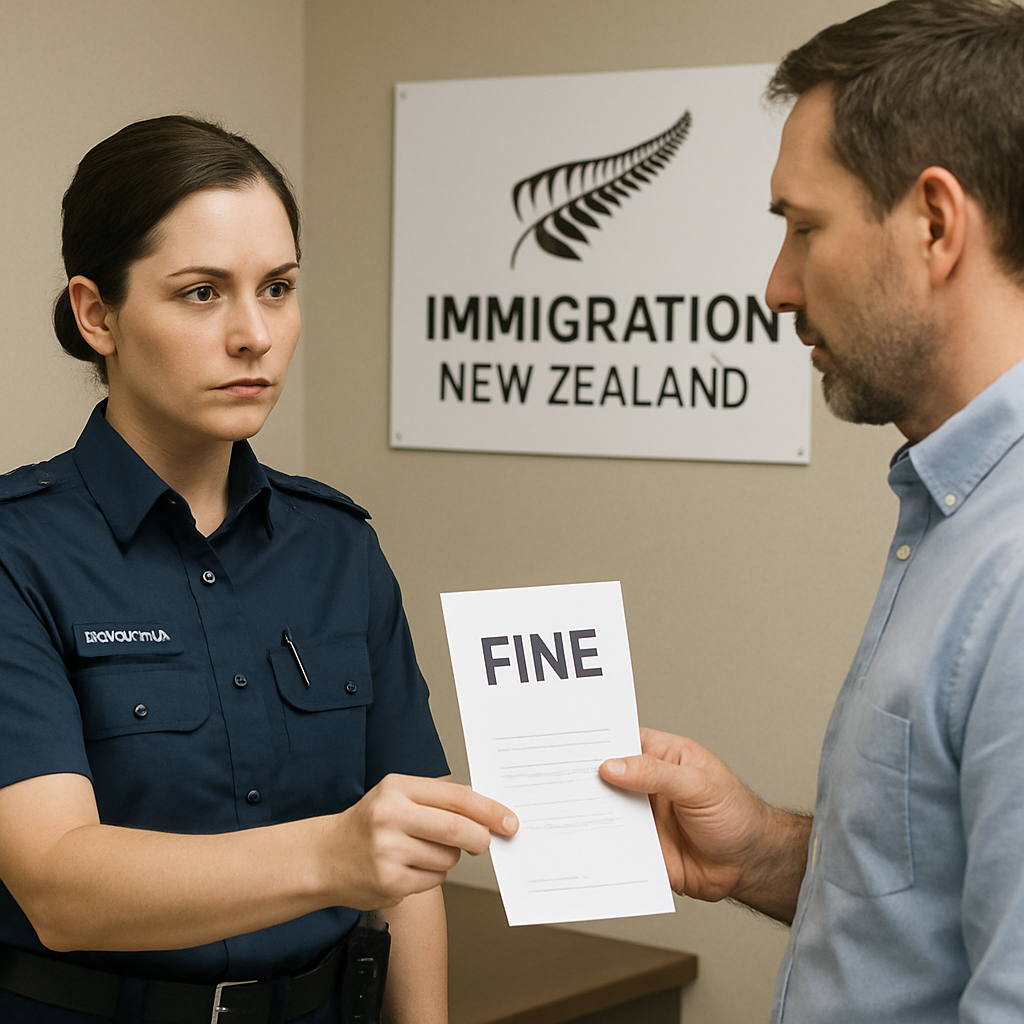Employers?
Request a no obligation demo of the vSure system.

The New Zealand Ministry of Business, Innovation, and Employment (MBIE) Department, under the Immigration Employment Infringement Scheme, is responsible for enforcing employer obligations under the NZ Immigration Act 2009 and the Worker Protection (Migrant and Other Employees) Act 2023.
When compared to other jurisdictions such as Australia, punishment in New Zealand for non-compliance seems barely a "slap on the wrist", but nonetheless can be quite impactful.
Whilst employers face fines of up-to AU$1.485m (NZ$1.66m) per breach (aggrevated offence) in Australia, the maximum fine in New Zealand is just NZ$3,000.
But that is in fact not a fair and direct comparison, as the New Zealand legislation specifies these fines for "low level offences". Whilst the very mention of "aggrevate offence" in Australia means the opposite of a low level offence.
So apart from the risk of criminal procedings, meagre fines for low level offences and the reputational risk, perhaps the greater consequence for NZ employers is the potential to added to the Immigration stand down list. This results in the employer being banned from employing visa holders for a set period or even indefinitely.
Amendments to the New Zealand Immigration Act 2009 contained within the Worker Protection (Migrant and Other Employees) Act 2023 underpin the compliance obligations for employers in New Zealand. You can read more on our Legislation page.
Enforcement of these laws falls under the Immigration Employment Infringement Scheme.
The scheme allows MBIE Immigration to issue infringement notices to both accredited and non-accredited employers who commit low level offences, including if they:
Infringement penalties can include:
Importantly, more serious breaches "may result in criminal charges".
| Fine | Stand-down period |
|---|---|
| Up to and including NZD $1,000 | 6 months |
| Over NZD $1,000 but less than NZD $10,000 | 12 months |
| Over NZD $10,000 but less than NZD $25,000 | 18 months |
| NZD $25,000 or more | 24 months |
If you are an Accredited Employer you will also lose your accreditation status, in addition to being stood-down from hiring migrants.
After the stand-down period has ended you must show you have addressed the non-compliance issue and taken steps to make sure it does not happen again (such as implementing vSure). A business with compliance failures cannot be closed and opened again under a new name to avoid those failures. We still take the compliance issues of the previous business or key people into account.
Employers cannot get their accreditation back or support visa applications while they are ‘stood down’. An employer can receive a 6-month stand-down for a single infringement notice, an extra 6-month stand-down for each subsequent infringement notice and a 12-month maximum stand-down for multiple notices issued at one time.
While an employer is on the stand-down list, they can continue to hire migrants on open work visas and continue to employ migrants who hold a current the Accredited Employer Work Visa (AEWV) for their business. When the stand-down ends the employer must show they have rectified the matter and improved processes to stop it happening again, before they can gain accreditation again under AEWV. MBIE will notify any employees that are on a AEWV that the employer has been placed on the stand down list
Any employers who have been penalised and temporarily barred from hiring migrant workers will be published on the Immigration New Zealand website. This list aims to increase transparency in the immigration system.
The maximum stand-down for multiple infringement notices issued at once is 12 months.
For the following Immigration Act offences, your stand-down period is determined by the fines you are given in court.
| Financial year (1 July to 30 June) | 2024/25 |
|---|---|
| Infringements issued | 121 |
| Total employers issued infringements | 118 |
| Total amount of infringements (NZD) | NZD $395,000 |
The trend is towards more prosecutions and more stringent enforcement.
In simple terms, all New Zealand employers must validate the legal Right To Work of all staff. Specifically this means:
New Zealand employers should take the necessary steps to collect / sight "proof of work rights" documents for all staff. Specifically this means:
Sound easy? If you only have a few employees, sure. But it is common for employers to not find this easy as their headcount grows. And this is where vSure comes in. We help streamline compliance, whilst delivering optimal employee experience.
vSure makes work rights compliance in New Zealand easy, by:
Would you like to know more? Reach out today to arrange a demo and a quote.